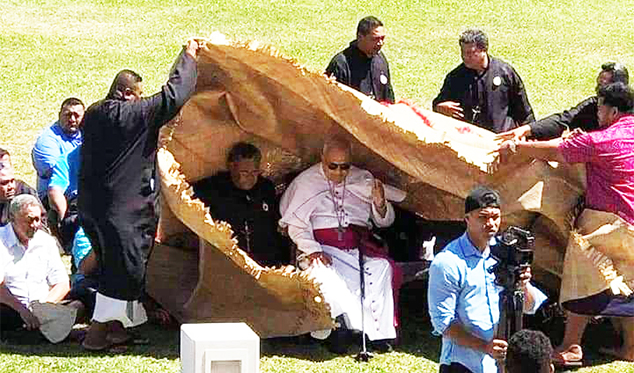
The thought of how ‘absolute power corrupts absolutely’ stood out eerily for Samoa in the disgraceful aftermath of the April 2021 general elections.
None of the institutions we valued and hold sacred as Samoans, escaped the corrosive reach of a blind struggle for political rule that is yet to show any true signs in sight of an end to the hostilities.
The Constitutional authority vested in the Office of the Head of State was the first to fall victim when decrees by His Highness Tuimaleali’ifano Va’aleto’a Sualauvi II were ignored.
Cries of protest were heard at the collapse of the supreme authority of the Constitution when the powers of His Highness were usurped.
The supreme authority was switched over to the rule of law vested in the independent verdicts of the Judiciary.
But it did not take very long before the integrity of the Judiciary was dragged into critical scrutiny when the leaders on each political side became embroiled in a mudslinging contest over allegations of attempts at corruption.
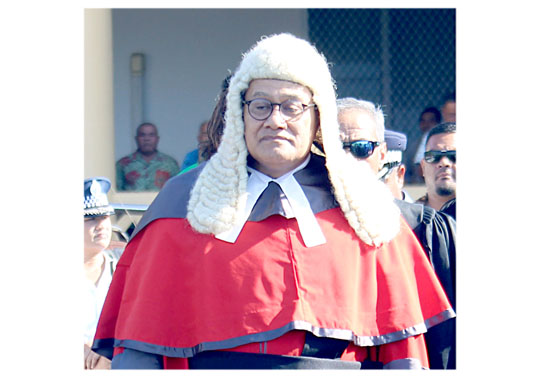
Allegations of interference with the impartiality of the judges of the court whizzed like flying poisoned arrows between the feuding party leaders.
FAST leader Fiame Naomi Mataafa ran down Tuilaepa Sailele Malielegaoi as caretaker Prime Minister at the time over comments that judges partied with members of her political party.
She accused Tuilaepa of having no regard for the independence of the Judiciary and should be held in contempt of court.
Tuilaepa shot back that it was Fiame who dragged politics into the courts by questioning the early release of the Chief Justice, Satui Simativa Perese, from quarantine.
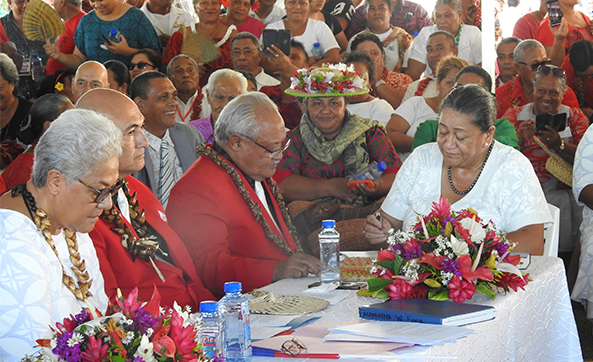
The Chief Justice was released after only a week in quarantine on his return from medical treatment in New Zealand.
Fiame was accused of not realising what she was talking about caused serious damages to the integrity of the court.
The venom of the heated exchange created early doubts and suspicions at the justice of the courts, it started to show up in the ensuing period of election petition hearings.
The once sacred trust in the rule of law eroded to the point where Chief Justice Satiu Simativa Perese was forced to issue a public statement to reassure the country of the judges’ oath to uphold justice.
The UN Secretary-General, António Guterres also made a direct appeal to the political leaders in the interest of human rights with serious concerns at the ‘challenges to the rule of law in Samoa.
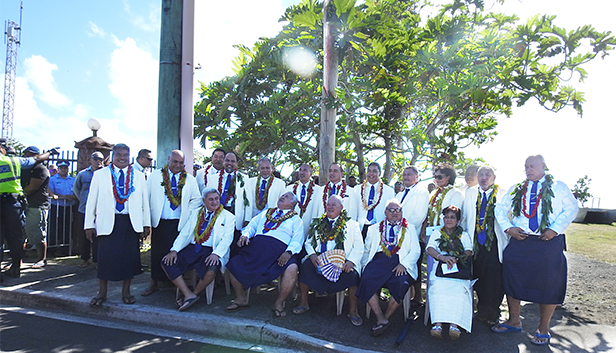
His emphasis was on the need for judges of the courts in Samoa to be “…able to undertake their functions without pressure, interference or personal attacks from any quarter.”
There were 28 election petitions against illegal practices for the Supreme Court to preside over following the general elections.
All other court hearings were set aside as priority went to the hearing of election petitions that were spread evenly between the two political parties.
The telling influence of early doubts that questioned the fairness of the courts brought little surprise when complaints were made to the Judiciary Review Commission.
Some of the court proceedings that appeared questionable as well as the final decisions handed down were raised with the Commission.
An expressed preference was made for outside judges to take over at the bench.
The Commission granted the request when New Zealand justices were brought in towards the end of all the election petition hearings.
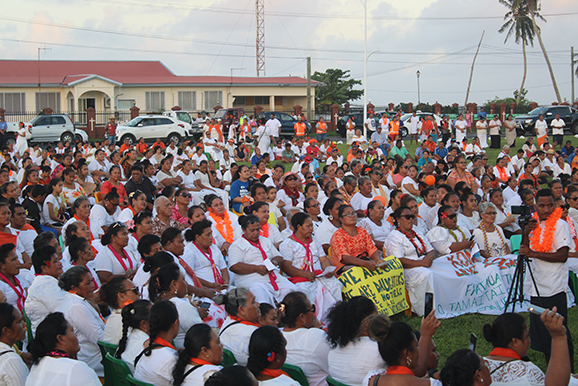
There was also a call for Chief Justice Satiu Simativa Perese to be recused from presiding in the Appeals Court hearings of the FAST ‘under the tent swearing in’.
It followed the Supreme Court decision to reject the legality of the ‘under the tent’ swearing in of the FAST Government.
The ruling basically set the scene for what became a series of challenges on the integrity of the Judiciary never before seen and felt in the administration of justice in Samoa.
What became glaringly obvious was how the integrities of the Office of the Head of State and the Judiciary were seriously challenged by the uncertainties of political instability.
Another institution that also became a victim of unstable corruptive politics is religion.
The blatant anti-HRPP political campaigning by many of the EFKS ‘faifeau’, was an open secret in their support of the FAST political party in the general elections.
The church ministers were urged to influence a new Government takeover, sympathetic to their complaints about being made to pay income taxes under HRPP rule.
Bad air created by party politics became a major worry for the Chairman of the National Council of Churches, Rev. Kasiano Leaupepe.
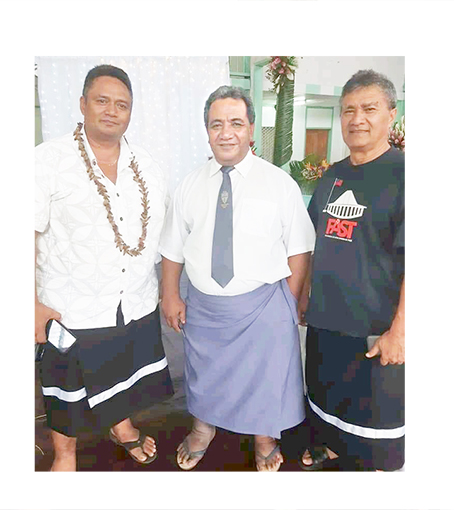
He was shocked by so much bad air during an election period, that he had never come across in his many years of experience.
Political misinformation and the deliberate misleading of voters by unrealistic promises became a safety issue that unsettled the church leader.
His advice at the time to all the political parties before the general election was “…to stop the lies and dirty politics from inciting the voters.”
Peace did prevail in the end after the general elections. But the question to be answered as we start 2022 is what is ahead for us and where is the country’s deep political divisions taking us in the next 12 months?
Will it end this year or last all the way to our new general elections in 2026?
Respect for all our sacred institutions are badly corroded by the destablising influence of manipulative politics to win power.
